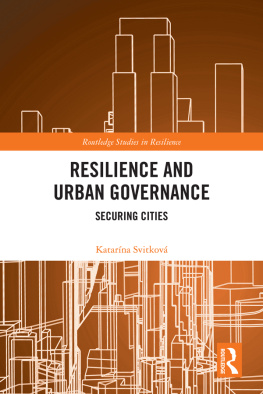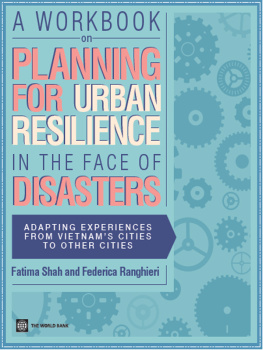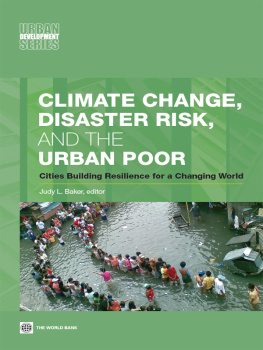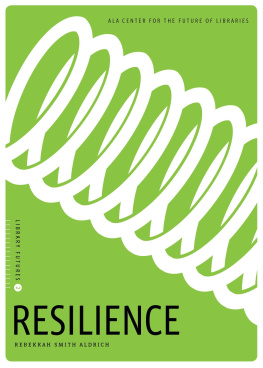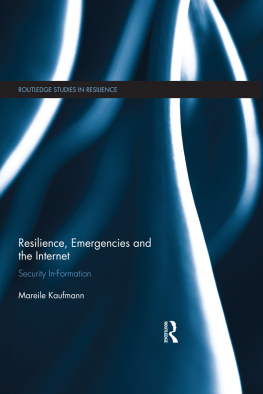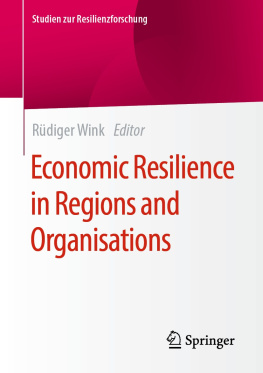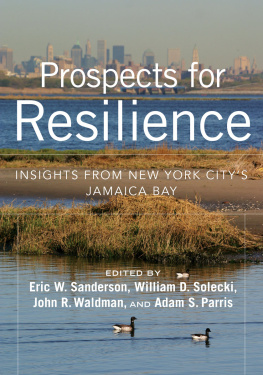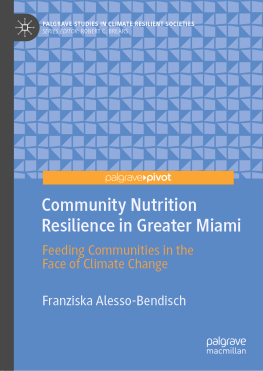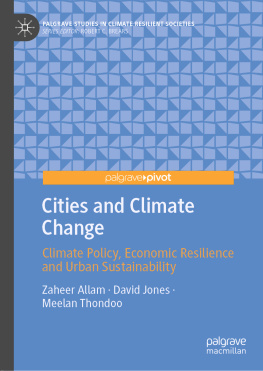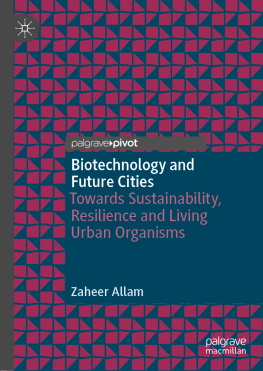Resilience and Urban Governance
This book challenges the concept of urban resilience by exploring its impact and limitations in three cities.
Resilience has become a buzzword in science, industry, and policy, and this volume offers a fresh perspective on urban resilience as a regulatory and constitutive principle of governance in cities. Cities constitute an extremely relevant playground for resilience, as they are exposed to various disruptions, from natural disasters and pandemics to political conflicts and terrorism. This book traces the evolution of urban resilience, from international development organizations to local governments and communities. It explores how this concept was adopted and mobilized by different actors for different purposes and analyses the resulting resilience momentum in Barcelona, San Francisco, and Santiago. The book outlines the extent to which resilience has become a universal policy tool and desired end-state, despite its clearly problematic definition. It also contributes to the discussion about contemporary governance, safety, and security in times when their very nature and feasibility are being questioned.
This book will be of much interest to students of resilience studies, urban studies, development studies, human geography, and international relations.
Katarna Svitkov earned a PhD in International Relations from the Charles University in Prague, Czech Republic. Her research and teaching is focused on human security and resilience in relation to urban environment.
Routledge Studies in Resilience
Series Editor: David Chandler,
University of Westminster, UK
The Routledge Studies in Resilience series is interested in publishing a broad range of high-quality contemporary research into the processes, spaces, policies, practices and subjectivities through which resilience is seen to operate.
Securitizing Global Warming
A Climate of Complexity
Delf Rothe
Resilience, Emergencies and the Internet
Security In-Formation
Mareile Kaufmann
Resilience in the Pacific and the Caribbean
The Local Construction of Disaster Risk Reduction
Simon Hollis
Resilience and Urban Governance
Securing Cities
Katarna Svitkov
For more information about this series, please visit: www.routledge.com/Routledge-Studies-in-Resilience/book-series/RSIR
First published 2022
by Routledge
2 Park Square, Milton Park, Abingdon, Oxon OX14 4RN
and by Routledge
605 Third Avenue, New York, NY 10158
Routledge is an imprint of the Taylor & Francis Group, an informa business
2022 Katarna Svitkov
The right of Katarna Svitkov to be identified as author of this work has been asserted by her in accordance with sections 77 and 78 of the Copyright, Designs and Patents Act 1988.
All rights reserved. No part of this book may be reprinted or reproduced or utilised in any form or by any electronic, mechanical, or other means, now known or hereafter invented, including photocopying and recording, or in any information storage or retrieval system, without permission in writing from the publishers.
Trademark notice: Product or corporate names may be trademarks or registered trademarks, and are used only for identification and explanation without intent to infringe.
British Library Cataloguing-in-Publication Data
A catalogue record for this book is available from the British Library
Library of Congress Cataloging-in-Publication Data
A catalog record for this book has been requested
ISBN: 978-0-367-65284-5 (hbk)
ISBN: 978-0-367-65285-2 (pbk)
ISBN: 978-1-003-12872-4 (ebk)
Typeset in Times New Roman
by Apex CoVantage, LLC
Contents
Acknowledgements
2 From problem-solving to self-governance
3 Global mobilizers of urban resilience
4 100 Resilient Cities
5 Operationalizing city resilience
6 Barcelona
7 San Francisco
8 Santiago
9 Re-thinking urban resilience: whats next?
Appendix
Index
- Acknowledgements
- 2 From problem-solving to self-governance
- 3 Global mobilizers of urban resilience
- 4 100 Resilient Cities
- 5 Operationalizing city resilience
- 6 Barcelona
- 7 San Francisco
- 8 Santiago
- 9 Re-thinking urban resilience: whats next?
- Appendix
- Index
Guide
- Acknowledgements
- Appendix
- Index
2.1 Resilience in Web of Science
3.1 Income sources of UN-Habitat (2017)
3.2 UN-Habitat funding by purpose: Regular vs. Earmarked
3.3 UN-Habitat funding by theme in 2017
4.1 100 RC partners by type of industry
4.2 100 RC partners by type of entity
5.1 Analytical framework for resilience as a technology of government
6.1 The Barcelona Resilience Partnership
3.1 Summary of the UN-Habitat discourse on resilience
3.2 Summary table of the three strategies of resilience in the discourse of UN-Habitat
4.1 Summary of the 100 RC discourse on resilience
4.2 Summary table of the three strategies of resilience in the discourse of 100 RC
5.1 Strategies of UN-Habitat and 100 RC summary and comparison
9.1 Strategies and actors of urban resilience in Barcelona, San Francisco, and Santiago
9.2 Political economy of resilience: comparison of Barcelona, San Francisco, and Santiago
This book was written with support of the Charles Universitys Centre of Excellence Human-Machine Nexus and the Implications for the International Order UNCE/HUM/037.
Resilience and its discontents
Introduction
The year 2016 was devastating for urban communities around the world. Thousands were displaced from Syrian towns and cities due to armed violence; Hurricane Matthew ripped through Haiti, killing 500 people and devastating infrastructure; China was hit by historic floods; and central Italy devastated by an earthquake. November 2016 also marked a landmark event of the UN-HABITAT III Conference titled The New Urban Agenda held in Quito, Ecuador. The high-level event brought together thousands of delegates from public administration, policy makers, NGOs, and private sector, pledging to empower urban communities around the world. Their message to the world was simple: we need to build urban resilience. Making cities resilient to crises and disruptions was declared as a top priority and the only way forward in the increasingly unstable and urbanized world.
Resilience has become the next big thing, while society, governance, and politics have become increasingly urban. The past decade in which the term urban resilience proliferated without precedent, was also a period of an enormous environmental devastation, social conflicts, continuous climate change, and more recently pandemics. Extreme weather events claimed thousands of lives and left millions of poor urban dwellers in a state of precariousness. Yet the dominant political and economic model, as well as institutions and practices upon which it is based, have gone unchanged. Risks have been embraced as an inherent part of the contemporary life, and governments have tried to come up with universal solutions for complex and unpredictable threats and contingencies. In this context, resilience of everything and everyone became the new policy buzzword. This book argues that the concepts overuse must be accompanied by problematizing the material and intersubjective effects of the governmental transformation for which resilience has served as a convenient label. Resilience has been introduced and promoted as an objective quality of individuals and systems in a sense of adaptability. This book, however, aims to discuss this concept in the context of its material and ideational impacts, as well as its political economy. More specifically, reflecting its epistemological focus, the book poses critical questions about constructing and promoting the regulatory processes and networks informed by resilience which have had important material consequences. At the same time, it problematizes the related process of constituting resilient urban subjects, that is, the internalization of resilience as a self-governance technique, imposed on and by citizens on their own behalf.

